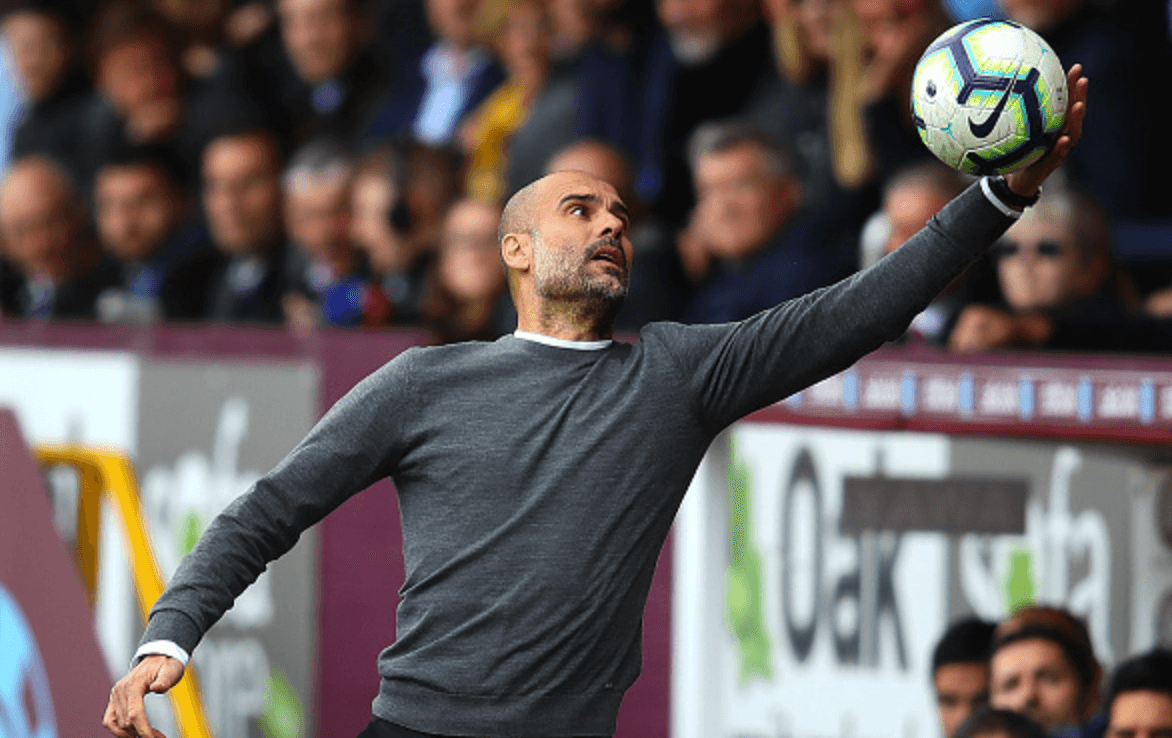It’s safe to say that the 2017/18 Premier League season was all about Manchester City.
Pep Guardiola masterminded a historic title triumph in Manchester, as his side amassed records after records. City managed the most points, most goals and the highest goal difference ever in a 38-game Premier League season. Pep deserves all the plaudits in the world, and rightly so.
However, obscure from the public eye, another manager was impressing as well. Sean Dyche, or the ‘Ginger Mourinho’ if you will, was building something special at Turf Moor.
He took a side which finished 16th the season before to 7th place, which put them into European competition for the first time in over half a century. Dyche had a measly budget and limited resources, but he built a plucky side who could beat anyone on their day.
Guardiola clinched the managerial accolades after the season, but Dyche’s case was a strong one. The work both of them did was vastly different, but that should not undermine Dyche’s achievement.
Bear with me for this analogy. Two cooks were asked to bake a cake. One had a huge pantry to work with, and the other had just flour, eggs, and sugar. Now the first one will come up with a better cake, but is that the better achievement considering the context?
The jobs which both the managers undertook were could not be more contrasting. If the roles were reversed, would the results be similar? Guardiola a treasure chest to utilise at City, and he spent more than €500 million in his first two seasons.
Aside from this, he inherited top-notch players like Raheem Sterling, Kevin De Bruyne, Sergio Aguero, and David Silva. Meanwhile, Dyche could shell out only €80 million in those two campaigns.
The financial resources which the likes of Guardiola are accustomed to are astronomical. This is not a knock on them but look at Jurgen Klopp at Liverpool, Jose Mourinho at Manchester United, and Ernesto Valverde at Barcelona to name a few.
These elite managers have always had the luxury of spending at will, which is hard to fathom at a club like Burnley. The lavish outlay of cash brings in elite players, which suit the respective styles of the manager.
Take Guardiola for example. His system needs specific players, and he got them. Ederson came in as a ball-playing goalkeeper. Kyle Walker and Benjamin Mendy arrived as dynamic full-backs. Ilkay Gundogan and Bernardo Silva arrived as technical maestros in midfield.
Klopp got in Virgil van Dijk for a record fee to strengthen the backline. Valverde spent €100 million each on two attackers, and neither has been a stunning success.
Meanwhile, Dyche is persisting with veteran Phil Bardsley at right-back. Rafa Benitez has brought the best out of Isaac Hayden and Ayoze Perez. Jeffrey Schlupp and Andros Townsend have impressed hugely under Roy Hodgson. These managers have no choice at times, and they have to squeeze every bit out of unglamorous players. Doing that is a skill and one which top managers don’t have to exercise.
When a team with a limited budget is looking for a mid-table finish, the manager needs to have a certain skill set. He should make do and improvise with the squad he has. He should invest judiciously in the transfer window. Compromising on footballing ideology is necessary, and he has to accept that the majority of games will not translate into wins.
Dyche did this admirably last season, and Benitez and Javi Gracia are doing similar this campaign. Can Jurgen and Pep emulate them if thrust into that situation? It’s doubtful, to say the least.
Winning titles is at the helm of a manager’s ambitions, and rightfully so. But numerous clubs need different things from a coach, and the magnitude of that job should not be forgotten. The Dyches and Rafas of this world do something which the Peps and Jurgens would struggle at. They get fewer ingredients, but still manage a cake despite it. Piece of cake? Not for everyone.



